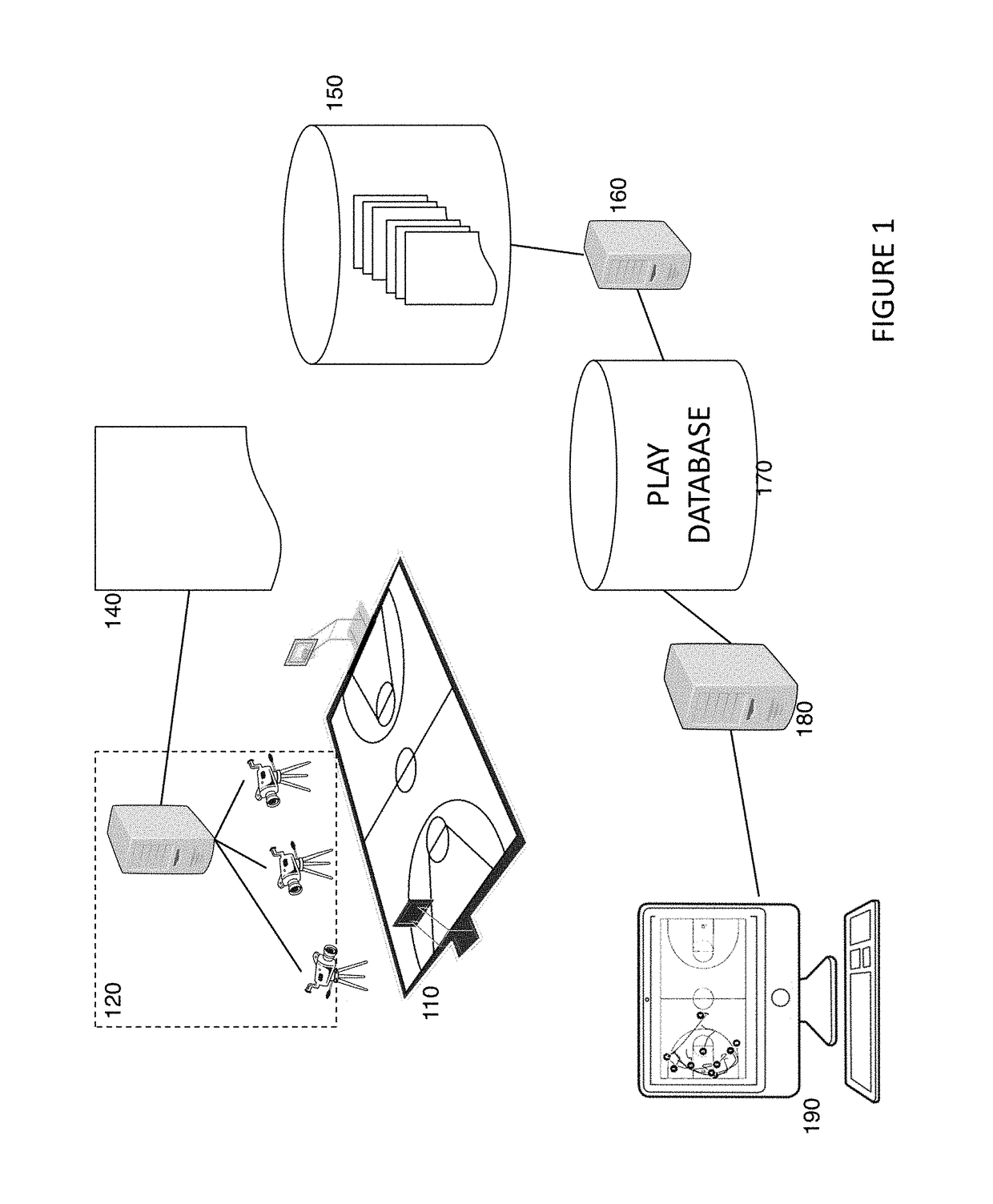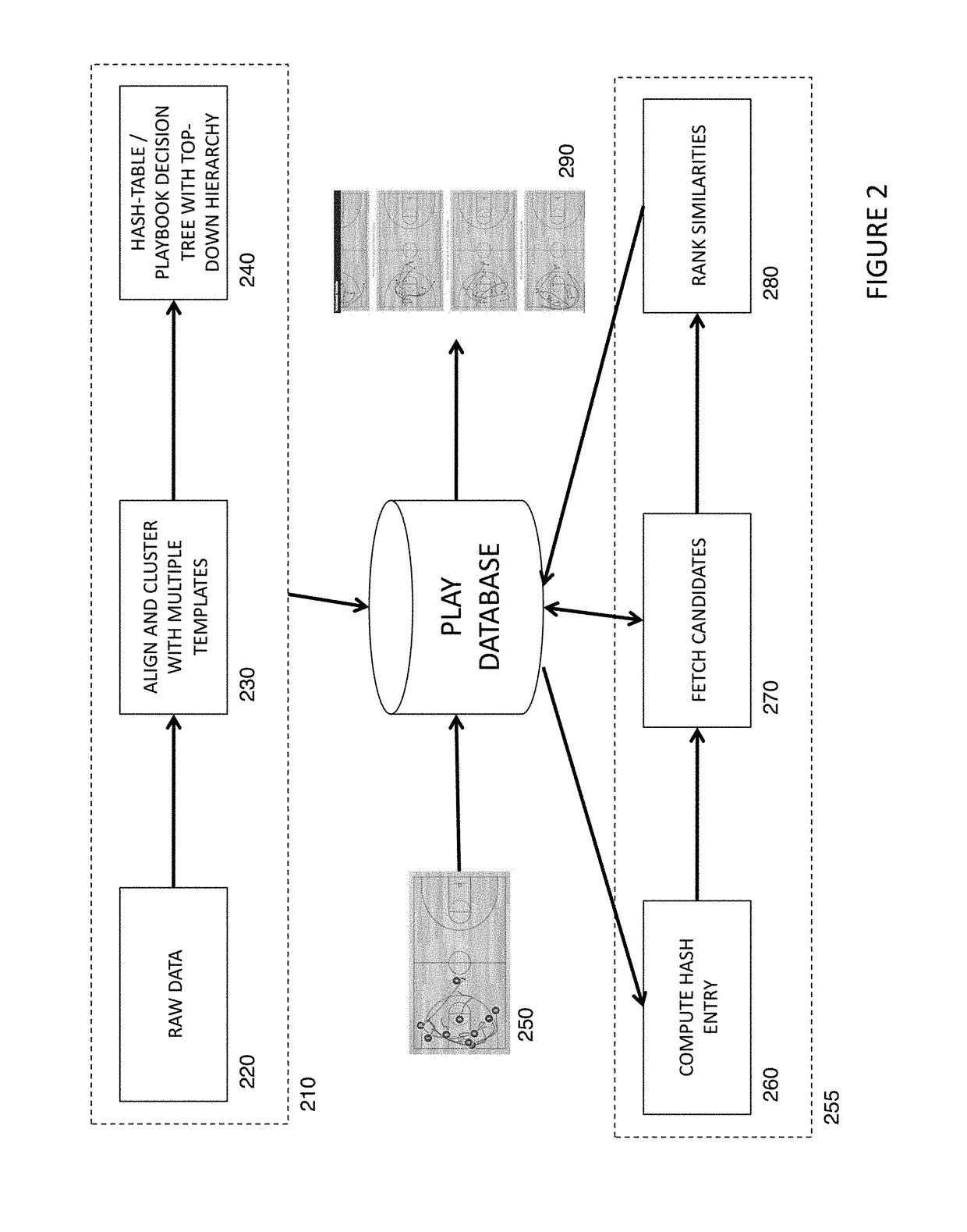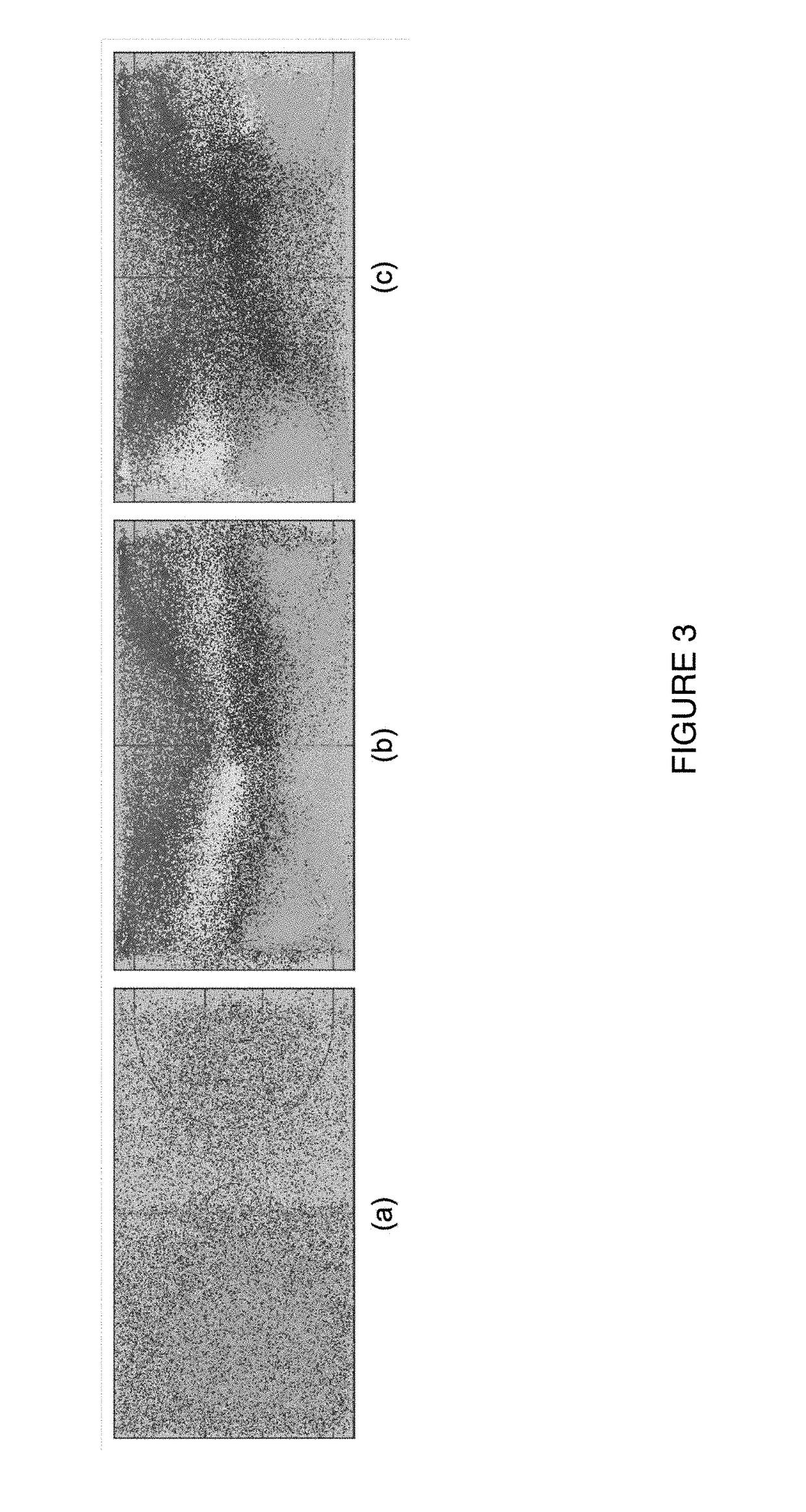System and method for predictive sports analytics using clustered multi-agent data
a sports analytics and multi-agent technology, applied in the field of system and method for predictive sports analytics using clustered multi-agent data, can solve the problems of limited usefulness of such a system, huge amount of labels and effort, and the subtle movement of players through tags or text labels
- Summary
- Abstract
- Description
- Claims
- Application Information
AI Technical Summary
Benefits of technology
Problems solved by technology
Method used
Image
Examples
Embodiment Construction
[0029]Embodiments of the present system process large amounts of sports-related tracking data in an efficient manner, enabling the querying and retrieval of statistically similar sports plays and the generation of analytical statistical predictions for player and team behavior through an interactive visual interface.
[0030]A general overview of the context of the system is described with respect to FIG. 1, in accordance with an embodiment. At a sporting event taking place at a venue 110, a tracking system 120 records the motions of all players on the playing surface, as well as any other objects of relevance (e.g., the ball, the referees, etc.). Tracking system 120 can be an optically-based system using, for example, a plurality of fixed cameras. Alternatively, tracking system 120 can be a radio-based system using, for example, RFID tags worn by players or embedded in objects to be tracked, or tracking system 120 can be another type of system that tracks moving objects. Preferably, t...
PUM
 Login to View More
Login to View More Abstract
Description
Claims
Application Information
 Login to View More
Login to View More - R&D
- Intellectual Property
- Life Sciences
- Materials
- Tech Scout
- Unparalleled Data Quality
- Higher Quality Content
- 60% Fewer Hallucinations
Browse by: Latest US Patents, China's latest patents, Technical Efficacy Thesaurus, Application Domain, Technology Topic, Popular Technical Reports.
© 2025 PatSnap. All rights reserved.Legal|Privacy policy|Modern Slavery Act Transparency Statement|Sitemap|About US| Contact US: help@patsnap.com



